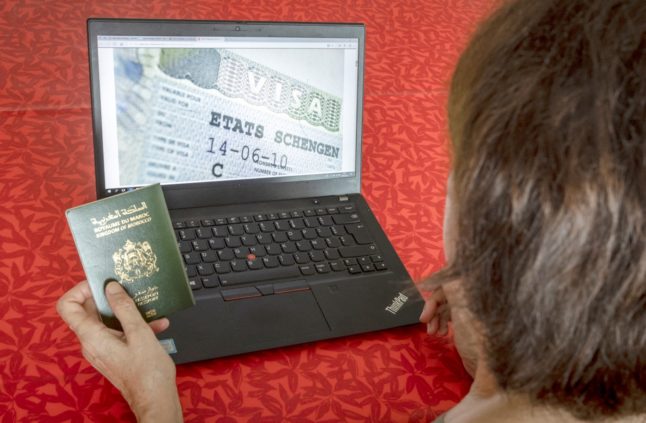The Commission has proposed raising the basic fee for a Schengen visa from €80 to €90 for adults and from €40 to €45 for children.
Schengen visas can be obtained by non-EU citizens from countries that do not benefit from the EU / Schengen area’s 90-day rule such as such as nationals of South Africa, India, Pakistan, Sri Lanka and China.
The EU is also proposing to hike the fee even higher for those countries who are deemed not be cooperative with receiving expelled citizens back from member states.
So if the EU Council, which is made up of EU governments, decides that there is “insufficient cooperation on readmission” of expelled citizens with a third country, the Schengen visa fee for citizens from that country will rise from €120/€160 to €135 /€180.
In addition, the revision of visa fees impacts the maximum amount that external service providers collecting visa applications on behalf of member states can charge, which is usually set at up to half the standard fee.
This charge would increase from €40 to €45.
The fee for a Schengen visa extension will remain at 30 euros.
Revised every three years
Every three years the EU Commission is tasked to assess whether new fees are needed, considering “objective criteria”, such as the EU inflation rate and the average of civil servants’ salaries in EU member states.
The Commission published its proposal on February 2nd, following a meeting with experts from EU member states in December, when an “overwhelming majority” supported the revision.
The proposal is now open for consultation until March 1st. The Commission can then adopt the regulation, which will enter into force 20 days after its publication in the Official Journal of the European Union.
The Commission says that even with the increase, the visa fees for the Schengen area are “still relatively low” compared to other countries. For instance, a visa for the USA costs €185, or €172; for the UK it starts from £115 (€134); for Canada it is $100 plus $85 for biometrics, or €130; for Australia $190, the equivalent of €117.
Digital-only visa
The EU is also planning to introduce a digital-only Schengen visa. This will allow to apply online, regardless of the Schengen country applicants intend to visit, and will replace the current sticker in passports with a digital visa.
According to the European Commission website, the digital platform will start operating in 2028.
Who needs a Schengen visa
The Schengen visa allows a stay for tourism or family visits (but not for work) in 28 European countries for up to 90 days in any 6-month period. People travelling for business trips, conferences or meetings apply for a Schengen business visa.
Anyone who wants to stay longer, or to work, needs a visa from the country they intend to visit.
The Schengen visa is required for citizens of countries who do not benefit from the ‘90-day rule’, such as nationals of South Africa, India, Pakistan, Sri Lanka and China.
It is not needed for other non-EU nationals such as Brits, Americans, Canadians or Australians who can spend up to 90 days in every 180 in the Schengen area without needing a visa. You can see the full list of countries who need a visa here.
Schengen countries include EU member states, excluding Ireland (which opted out), Cyprus, and Bulgaria and Romania for land borders. Iceland, Norway, Lichtenstein and Switzerland are not EU members but have also joined the Schengen Convention.



 Please whitelist us to continue reading.
Please whitelist us to continue reading.
Member comments